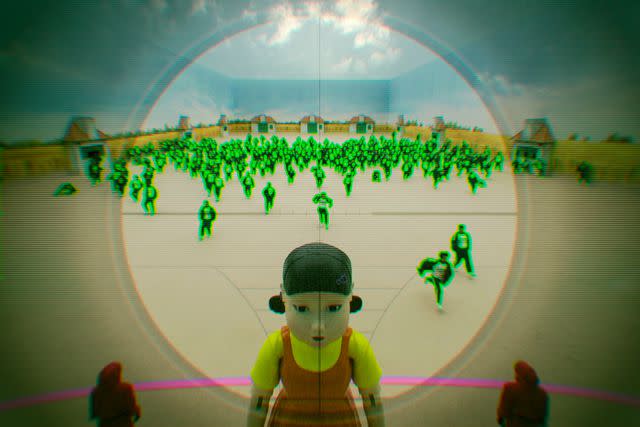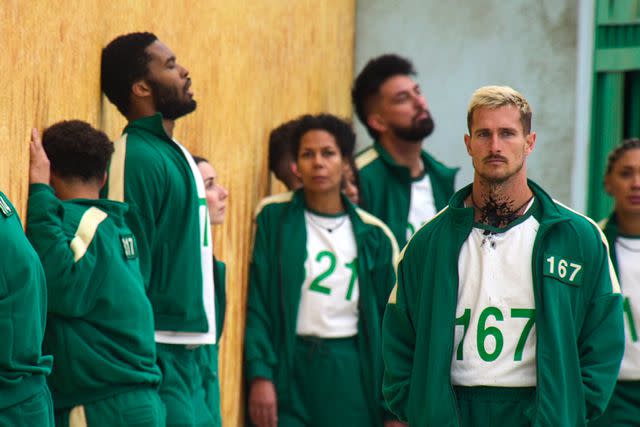“Squid Game” reality show producers say claims of 'inhumane' conditions were 'not accurate'
"We did absolutely everything appropriate, and it was a very small number of people who were treated for medical issues," says "Squid Game: The Challenge" executive producer John Hay.
While the scripted drama Squid Game was lethal for all but one of its 456 players, producers of Squid Game: The Challenge, Netflix's reality competition series based on the popular Korean show, are denying previous reports that contestants were put through "inhumane" conditions during filming.
The reality show made headlines in January when contestants who competed on the show spoke out anonymously about the freezing cold temperatures and other factors that caused multiple people to see medical attention during the first challenge, Red Light Green Light. But executive producers John Hay, Toni Ireland, and Stephen Yemoh tell EW that some of those claims were "not accurate."

Courtesy of Netflix
Red Light Green Light on 'Squid Game: The Challenge'"It was a big, complicated shoot, and it was quite cold and it took quite a long time for all these adjudication reasons," Hay says, referring to how they judged whether any of the 456 players moved when they were supposed to be "frozen" in the game. "But it's incredibly important to us to do these things safely and with due care for the welfare of our players. We did absolutely everything appropriate, and it was a very small number of people who were treated for medical issues, but some of the reports that were given anonymously by those who were eliminated were not accurate."
The producers add that the physical and mental wellbeing of the players was always a priority during the intense shoot, and they had an extensive team of mental healthcare professionals on set throughout the entire filming process.
"Before everybody is picked to be on the show, they talk to a psychiatrist and they go through an evaluation to see if they're mentally fit enough to be on the show," Yemoh says. "And then once they're on the show, they've always got an opportunity to speak to psych at any point if they feel like they're struggling. We have a big welfare team, bigger than any other reality show we’ve worked on, who are always watching — they're separate from the editorial team and they're watching for any triggers, if they feel like somebody might be struggling or not being honest to the producers about what's going on with them. Any little triggers, we're always trying to pick up on that."

Courtesy of Netflix
Contestants on 'Squid Game: The Challenge'Ireland agrees, adding, "Welfare's something that we take really seriously. The cast got scaled up, therefore our welfare team got scaled up. We are on location, so when they're in the dormitory, we're always listening to their microphones and monitoring them and keeping logs on people, and then when they leave the show, they meet other members of the welfare team to make sure that they're fine after they've been eliminated and make sure they're okay to go home as well."
And that attention to contestants' mental health never ends. "Aftercare continues all the way through to now," Hay says. "We've kept in touch with people and then all the way through [the show's premiere]. It's incredibly important."
The first five episodes of Squid Game: The Challenge premiere Wednesday, Nov. 22, on Netflix.
Sign up for Entertainment Weekly's free daily newsletter to get breaking TV news, exclusive first looks, recaps, reviews, interviews with your favorite stars, and more.
Related content:
Attention all players: The Squid Game reality show is actually good
Green light! Watch the first trailer for Netflix's Squid Game reality show
Squid Game creator addresses reality spin-off: 'I know there are some concerns'
Read the original article on Entertainment Weekly.


